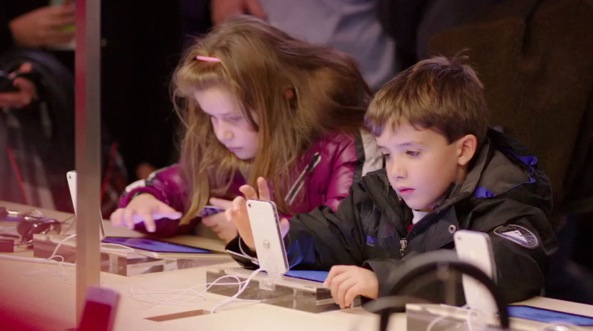According to a new study out today from research firm NPD Group, based on a poll of more than 3,000 United States consumers in February 2012, one out of four Apple customers in the United States chose the iPad as their first-ever Apple product.
Moreover, the iPhone and iPad combined account for one-third of first-time Apple purchases since 2010. In a way, the iPad is the new Apple gateway drug with universal appeal and strong pull.
The device lures first-time buyers to the Apple ecosystem. Once in, they live happily in that ecosystem and purchase additional gadgets over time, namely the iPhone…
According to the findings, relayed by Fortune, Apple’s products are found in over 37 million American homes – and growing – largely thanks to the iPad. The average Apple-friendly household owns 2.4 devices built by the company.
While over 70 percent of long-standing Apple owners began their relationship with the brand by way of the iPod, this number declines to just 57 percent among those entering the Apple franchise in the past two years. Newcomers to the brand increasingly turn to the iPhone or iPad as their first Apple device, which combined account for one-third of first-time Apple purchases since 2010.
Although two-thirds of polled U.S. households own an iPod, sales of Apple’s digital music player have been declining steadily ever since the iPhone launched. Don’t worry, though, as the so-called ‘halo effect’ is now all about iPhones and iPads.
Here’s another quote from the press release, which didn’t hit the wires by press time, courtesy of AppleInsider:
“iPad sales are growing much faster than any other Apple product has this soon after launch,” said Ben Arnold, director of industry analysis at NPD. “In fact, one-in-five Apple owner households has one— nearly equivalent to the number that own an Apple computer. This demonstrates the appeal of both the new form factor and Apple’s app ecosystem.”
And don’t underestimate the power of software:
“Apple’s OS X, iOS, and App Store are platforms specially tailored for their products,” Arnold said. “Should more households become multiple Apple product homes, these platforms will become even more important in the acquisition and sharing of content between devices.”
A recent All-America Economic survey found out that half of all United States households own at least one Apple product, equating to more than 55 million homes that have at least one iPhone, iPad, iPod or Mac computer.
Apple’s growth potential is evident as two-thirds of U.S. households still don’t own an Apple product. Additionally, nearly one-third of American homes don’t own an iPhone.
This, of course, bodes well for Apple, which has its headquarters in Cupertino, California.
The iPhone maker gets by far too often slammed for its tight vertical integration, as if there was something broken with providing customers with solutions that just work.
It’s not like Apple is forcing its products upon people, mind you.
Sure, Apple admittedly is the world’s greatest marketing machine, but don’t you think for a second that mindless iSheep – as rivals subtly liken Apple fans to – would ever stay within the Apple ecosystem and purchase more products unless they were satisfied with their first-time gadget.
[tube]bgZTtNQDO3k[/tube]
And if satisfaction scores are anything to go by, users of Apple’s products are by far the most satisfied bunch. Also important, Apple gets them while they’re young, something its rivals don’t quite comprehend yet.
If you have – or are – a teenager who fell in love with the iPhone or iPad, you know exactly what I’m talking about as these youngsters will soon get a MacBook or an iPod or whatever other Apple product is on their wishlist.
Apple only has to keep innovating and making great products.
Thoughts?
Is Apple just brain-washing customers with aggressive advertising or are buyers so much satisfied with their Apple purchases that they willingly pay a premium for gadgets that “just work” – and continue buying them?
Meet us in comments.
